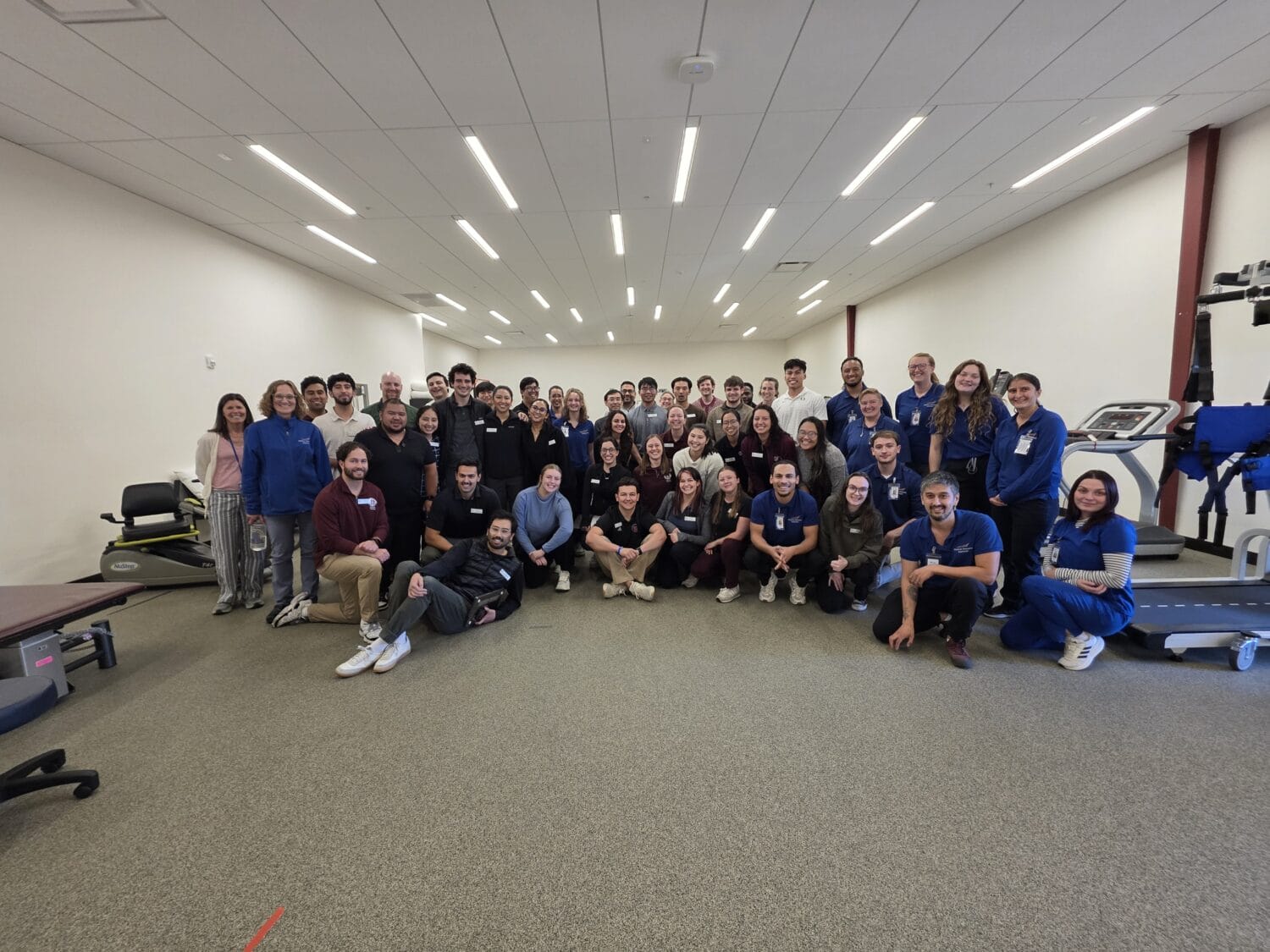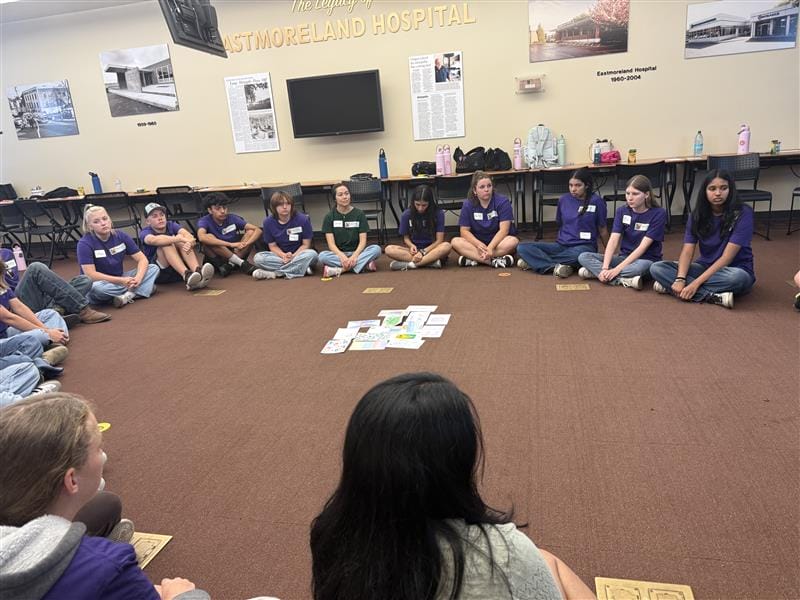Collaboration, strength emphasized at WesternU's Trends in Autism Conference
Speakers at the 13th Annual Trends in Autism Conference at Western University of Health Sciences emphasized collaboration, celebrating victories and building on strengths during their presentations.
The conference, held April 12, 2014 on WesternU’s Pomona, Calif. campus, was organized by WesternU’s Faculty for Autism Collaboration and Education (FACE), an interprofessional team of educators, clinicians and researchers that promotes integrated perspectives, activities and resources that serve to enhance the lives of individuals with ASD, and the lives of their significant others.
FACE’s mission served as the foundation for the discussion at the conference. The health care system around autism is extremely fragmented, even as autism’s impact on society grows. The Centers for Disease Control and Prevention estimates 1 in 68 children in multiple communities in the U.S. has been identified with autism spectrum disorder (ASD). This estimate is roughly 30 percent higher than previous estimates, reported in 2012, of 1 in 88 children, according to the CDC website.
“We believe that autism, or ASD, is a treatable whole-body disorder, and it requires an interprofessional approach,” said FACE Chair Gail Singer-Chang, PsyD, MA, MS. “We believe that these integrated perspectives can help address the fragmentation that we have in the system. We believe ASD creates a ripple effect. It doesn’t just affect the individual — it affects significant others, caregivers, and ultimately the culture, the community and society at large. It’s important to focus on what people with autism can do, and build on those strengths and skills, and not just focus on what they can’t do.
“We also believe that autism is not necessarily just a pediatric problem or issue. There are a lot of older people living with autism, as well, and their issues need to be addressed.”
The conference emphasized networking, sharing information and inspiring each other with new ideas and resources. The keynote speakers were Chantal Sicile-Kira, author and founder of autismcollege.com, and her son, Jeremy Sicile-Kira, author, artist and Autistic Global Initiative Youth Ambassador.
Jeremy was diagnosed with autism at an early age. Now in his 20s, Jeremy serves as the Autism Research Institute’s Youth Representative to the United Nations, and as a Young Leader for the Autistic Global Initiative, a project of the Autism Research Institute.
He wrote his presentation, “Thank You for Giving Me a Voice: How I Learned to Communicate,” and delivered it via computer voice output technology. He talked about the true nature of autism.
“‘Severely autistic’ for me means being stuck in a body that doesn’t work well, with no way to communicate,” Jeremy said. “Just think of what it would be like to not be able to move your body the way you want.
“Getting out of the darkness for me was not a miracle. It was a team effort of lots of work over a long period of time,” Jeremy said. “The real reason for my success in life and in college is, frankly, because my mom got good people to work with me and professionals that believed in me. My success is due to the many years of learning what the world is made of.
Gradually over the years, I learned to make sense of the things around me, and now I want to help others.”
His mother hired a great physical therapist to help him learn how to move his body parts and control his body, Jeremy said. He learned about words and their meanings by watching and listening to his mother talk. And he gained great confidence from his tutors.
“Just the fact the tutors tried to teach me gave me the confidence to try to pull myself out of nothingness,” Jeremy said. “If it was not for my nice mom and great teachers, my life would not be worth living. They believed in me, and that has made the biggest impact, more than the types of teaching methods used.”
Parents tend to focus on a child’s deficits because they’re writing IEP (Individualized Education Program) goals and developing therapies and strategies, but as they get older, their child’s strengths should become the focus, said Chantal Sicile-Kira.
“That’s how they’re going to create connections in the community and how they’re going to have a happy adult life,” she said.
Build on a person’s strength or area of interest, Chantal said. Jeremy loves the beach, and got to know the lifeguards who saw him every day. Now, three days a week, Jeremy helps set up the beach – putting cones and flags out, and washing the trucks.
“He’s giving back, and now he connects with young lifeguards,” Chantal said. “It gives him an opportunity to see other people in other ways. And everybody knows Jeremy.”
A positive attitude is also important. One day Jeremy woke up smiling. He said he had a dream that he could talk, but then remembered he couldn’t. Chantal told him that sounded sad, and asked him why he was still smiling. He said, “Because then I remembered I could type.”
“That cheered him up. That’s the attitude we should all have about our situations,” Chantal said. “It’s all about attitude. That’s why these community connections for families are so important. When families are all alone, and individuals with autism are all alone, it’s hard to keep that positive attitude because you’re not getting reinforcement from everyone around you.”
Upland resident Julie Cobos, who has a son with autism, said she was impressed with the speakers, and that Jeremy’s speech brought her to tears.
“As a parent, it gives you hope. It re-energizes you to keep fighting. I wish I could just hug everybody,” she said. “It does feel lonely at times. You may have a few friends who have children with autism, but not everybody is as interested as you in advocating for your child.”
Cobos said she sometimes feels overwhelmed, but parents can’t just sit back and trust the system.
“You have to fight. You have to push,” she said. “There is such a wealth of information in this room. People here get it. They want you to succeed.”



